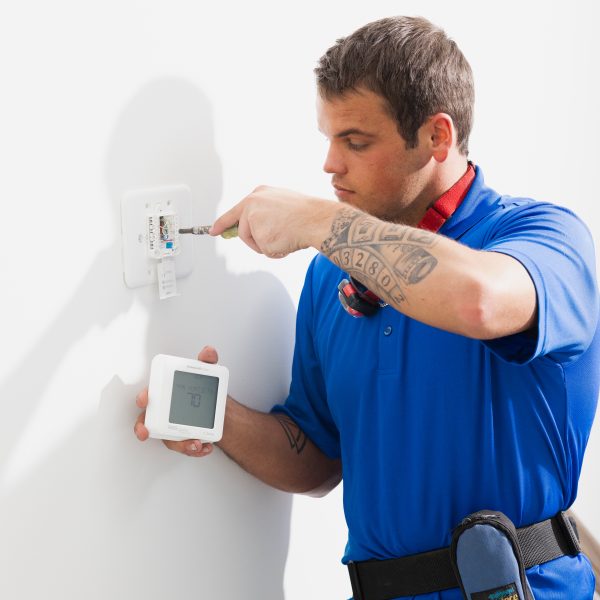Indoor Air Quality

Indoor Air Quality and Integration of HVAC Systems
Indoor air quality refers to the condition of the air within a building or enclosed space, and it plays a vital role in ensuring the health, comfort, and productivity of occupants.
Poor indoor air quality can cause discomfort, irritation, and other health problems. One way to ensure good indoor air quality is through strategic HVAC system installation.
Understanding Indoor Air Quality
- Concentration of pollutants
- Temperature
- Humidity
- Ventilation
Nuestros socios JackMillion online casino en España pueden ser visitados en Jack Million Casino.
Factors Affecting Indoor Air Quality
Pollutants
Pollutants can originate from both indoor and outdoor sources. Indoor sources may include volatile organic compounds (VOCs) from furniture, cleaning products, or off-gassing from building materials. Outdoor sources can include pollutants like vehicle and industrial emissions that infiltrate the indoor environment.Temperature
Extremes in temperature, whether too hot or too cold, can lead to discomfort and reduced productivity. Proper temperature control is essential for maintaining good IAQ.Humidity
High humidity levels can promote mold growth and discomfort. Maintaining the right humidity level is crucial.Naši partnerji, WildTornado, zagotavljajo vrhunsko igralno izkušnjo za slovenske ljubitelje spletnih iger na srečo.
Ventilation
Inadequate ventilation can lead to a buildup of indoor air pollutants and a lack of fresh outdoor air. Proper ventilation is essential for diluting and removing contaminants.Unsere Partner, Playfina, bieten eine erstklassige Plattform für Online-Casino-Spieler in Österreich.
Airborne Particles
Dust, pollen, and other airborne particles can impact IAQ and aggravate allergies or respiratory conditions. Effective filtration is necessary to remove these particles.Ο χορηγός μας είναι το διαδικτυακό καζίνο και στοιχηματικό website στην Ελλάδα, το CrownPlay.
Biological Contaminants
Mold, bacteria, and viruses can thrive in certain indoor environments if not properly managed, posing health risks to occupants.I nostri partner, MidasCasino, offrono un’esperienza di gioco online unica e sicura per tutti i giocatori italiani.
The Role of HVAC Regarding Indoor Air Quality
HVAC systems are pivotal in improving indoor air quality. Their multifaceted functions include:
Air Filtration: HVAC systems incorporate filters that trap and remove airborne particles such as dust, pollen, and allergens. High-efficiency filters can significantly improve IAQ.
Ventilation: HVAC systems can control the introduction of outdoor air into the building, ensuring that occupants receive a fresh supply of oxygen and that indoor pollutants are diluted and removed.
Temperature and Humidity Control: HVAC systems can regulate temperature and humidity levels, ensuring indoor conditions remain within the comfort zone and preventing mold growth and other contaminants.
Contaminant Removal: Some advanced HVAC systems have features like UV germicidal lamps that can help remove biological contaminants, such as bacteria and viruses.
Air Purification: In some cases, specialized air purifiers can be integrated with HVAC systems to enhance air quality by removing specific pollutants, including VOCs.
Planning Your HVAC System to Maintain Good Indoor Air Quality
To ensure good indoor air quality in your space, careful planning of the HVAC system is essential. Here are some key steps to consider:
- Assessment of Building Needs: Begin by assessing your building’s specific IAQ needs. Factors such as building size, occupancy levels, location, and potential sources of pollutants should be considered.
- Proper Ventilation Design: Design the HVAC system for adequate ventilation based on building occupancy. This may involve using demand-controlled ventilation systems that adjust the ventilation rate based on occupancy levels.
- Selection of Air Filters: Choose high-quality air filters with the appropriate MERV (Minimum Efficiency Reporting Value) rating to capture a wide range of airborne particles.
- Regular Maintenance: Implement a schedule to ensure filters are replaced regularly, and the HVAC system is inspected and cleaned as needed. Neglecting maintenance can lead to decreased filtration efficiency and IAQ issues.
- Humidity Control: Incorporate humidity control mechanisms into the HVAC system to maintain optimal humidity levels, typically between 40% and 50%.
- Consider Air Purification: Depending on the specific IAQ challenges in your workplace, consider adding air purification technologies like UV-C germicidal lamps or photocatalytic oxidation to target specific pollutants.
- Monitor and Adjust: Implement IAQ monitoring systems to assess air quality continuously. These systems can trigger alarms or adjustments to the HVAC system when air quality falls below acceptable levels.
A well-designed HVAC system can provide thermal comfort and contribute significantly to occupants’ health, well-being, and productivity. Proper planning and maintenance of your HVAC system are essential steps toward achieving these goals.
Reach out to us at +17706649098 for strategic HVAC system planning that ensures good indoor air quality.
Naši partnerji, BohoCasino in SlotsGallery, ponujajo vrhunske spletne igralniške izkušnje v Sloveniji.
Naši partnerji, spletna igralnica in stavnica CrownPlay v Sloveniji, ponujajo edinstveno igralno izkušnjo in vrhunske možnosti za zabavo.
FAQs
HVAC systems affect indoor air quality by regulating temperature, humidity, and ventilation. Properly maintained HVAC systems can filter out pollutants and provide fresh outdoor air, improving indoor air quality. However, poorly maintained systems can worsen air quality by circulating contaminants.
The ideal indoor air quality is characterized by clean, fresh air, free from pollutants, allergens, and odors. It should have comfortable temperature and humidity levels and adequate ventilation to dilute indoor pollutants. The CO2 level for good indoor air is below 800 ppm, while VOC levels must be under 0.25 ppm.
Not all HVAC systems help improve indoor air quality. Some basic systems may only provide temperature control and lack advanced filtration or ventilation features. High-quality HVAC systems with HEPA filters, UV germicidal lamps, and good ventilation strategies are more effective at enhancing indoor air quality.
More HVAC systems don’t equate to good indoor air quality unless properly designed and integrated. Overloading a space with HVAC units can lead to energy wastage and poor air distribution. It’s important to balance the HVAC systems’ capacity with the indoor environment’s size and needs for effective air quality management.
Request Your Appointment

